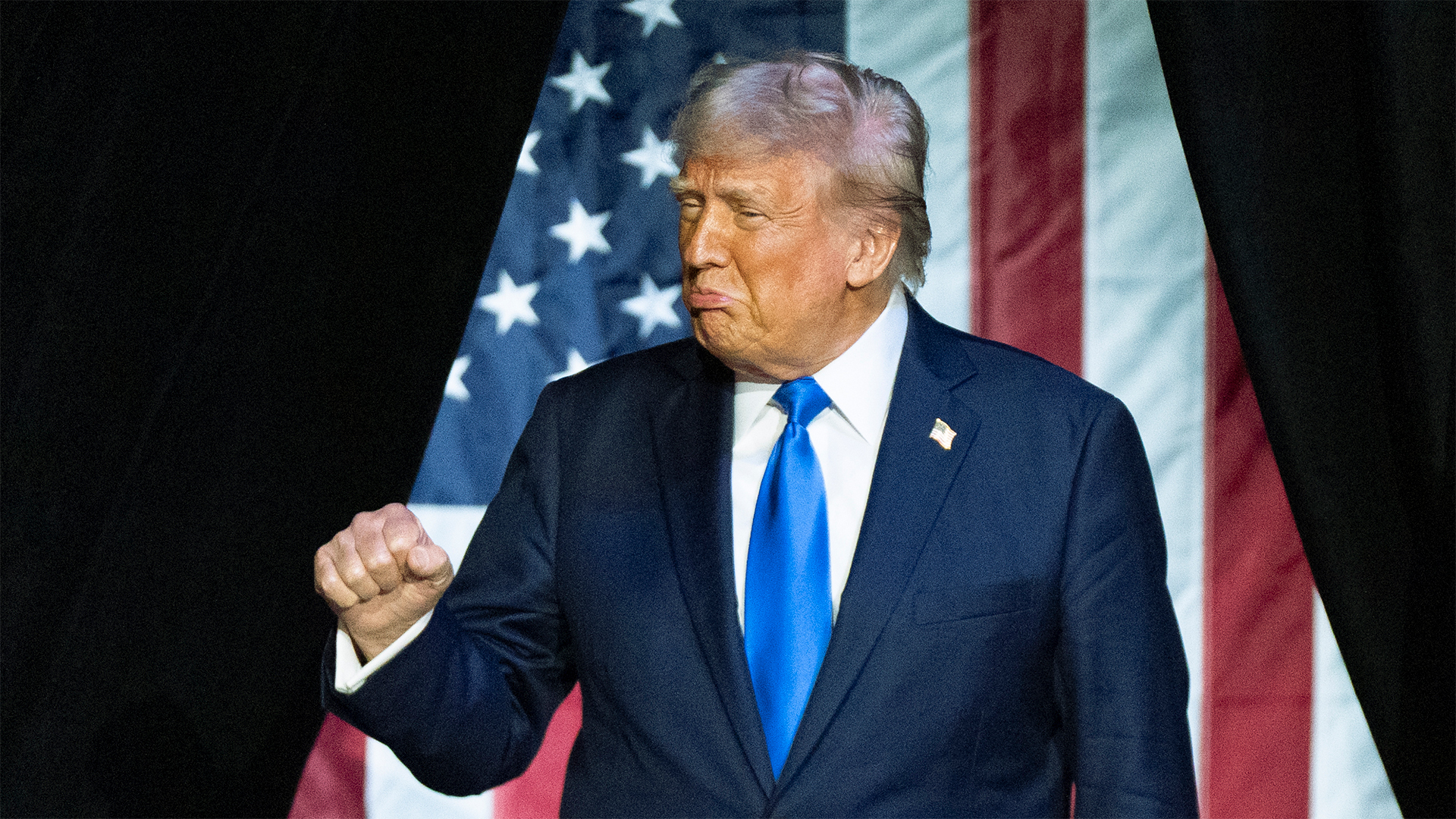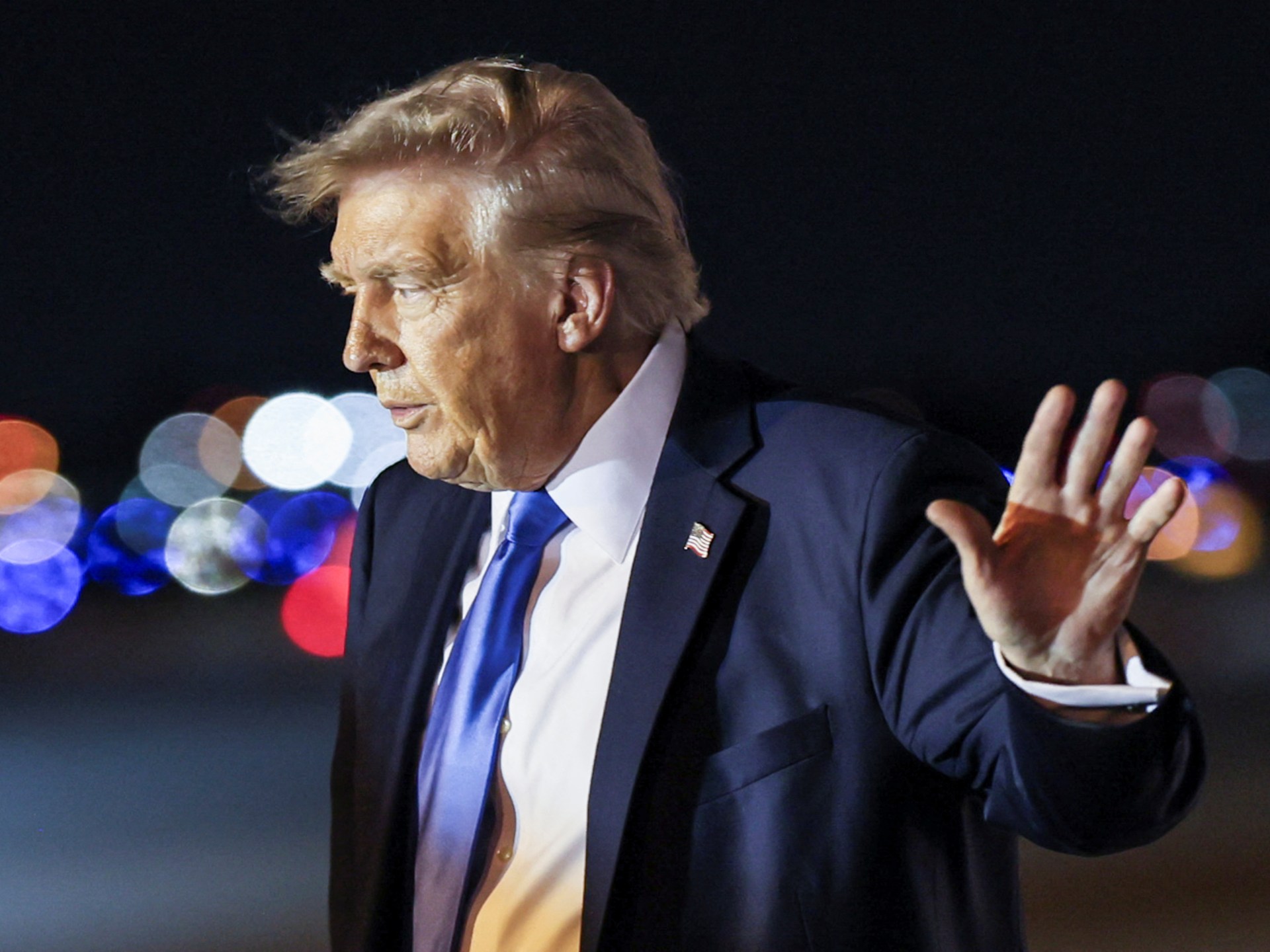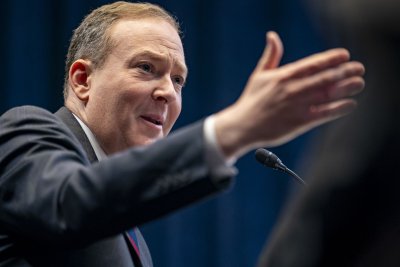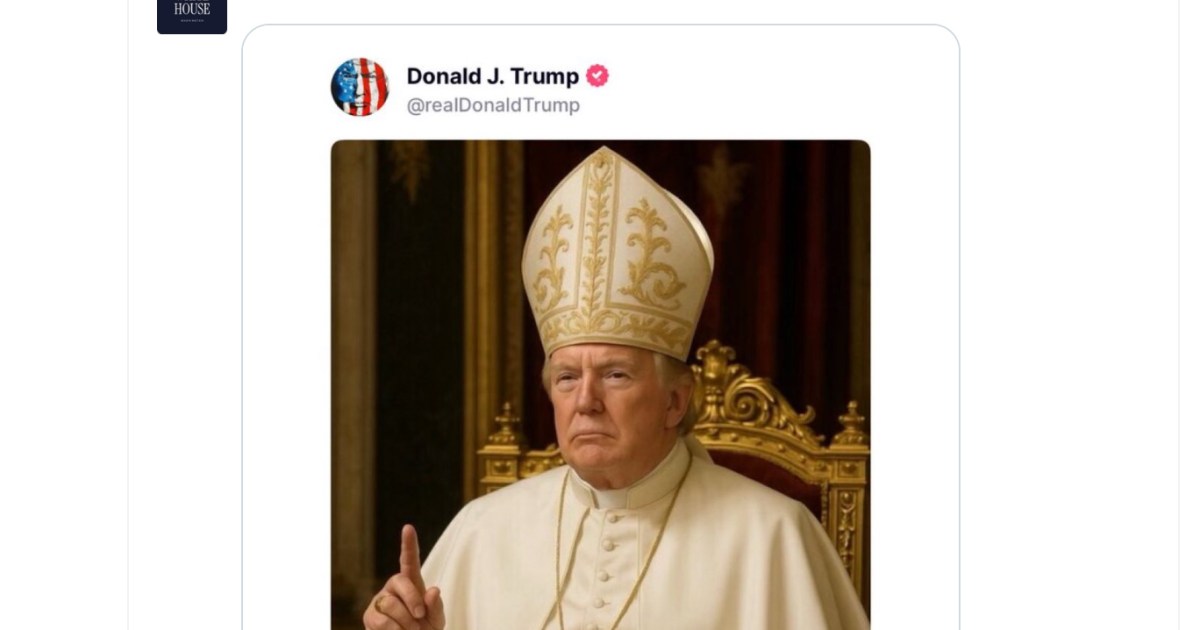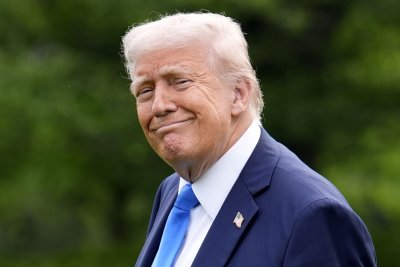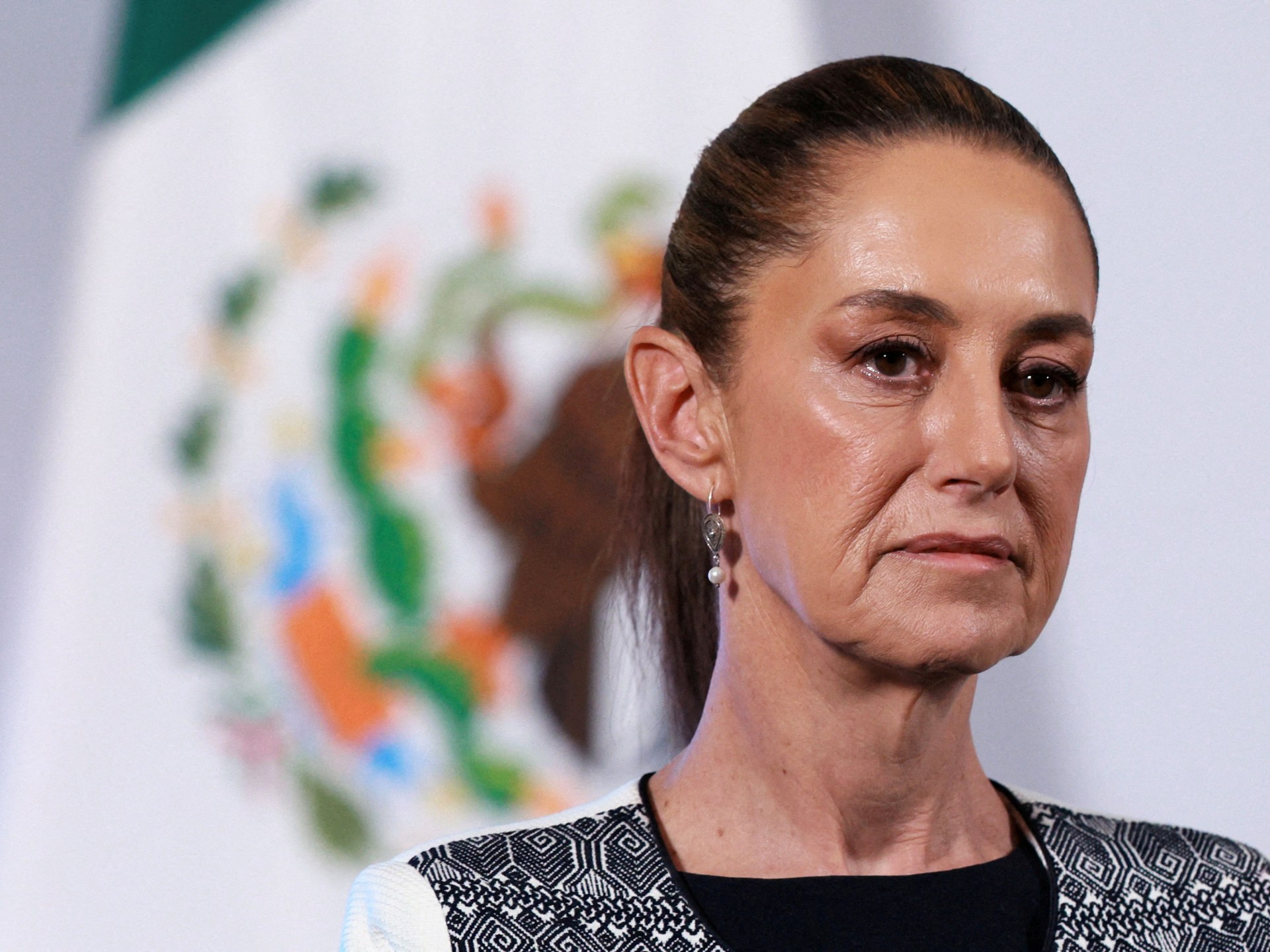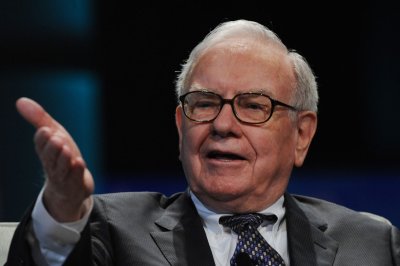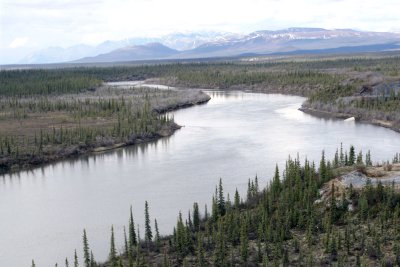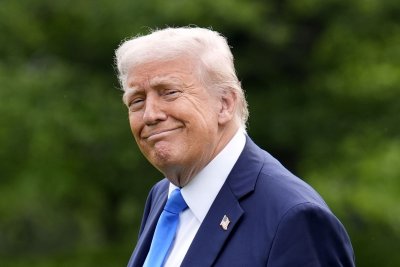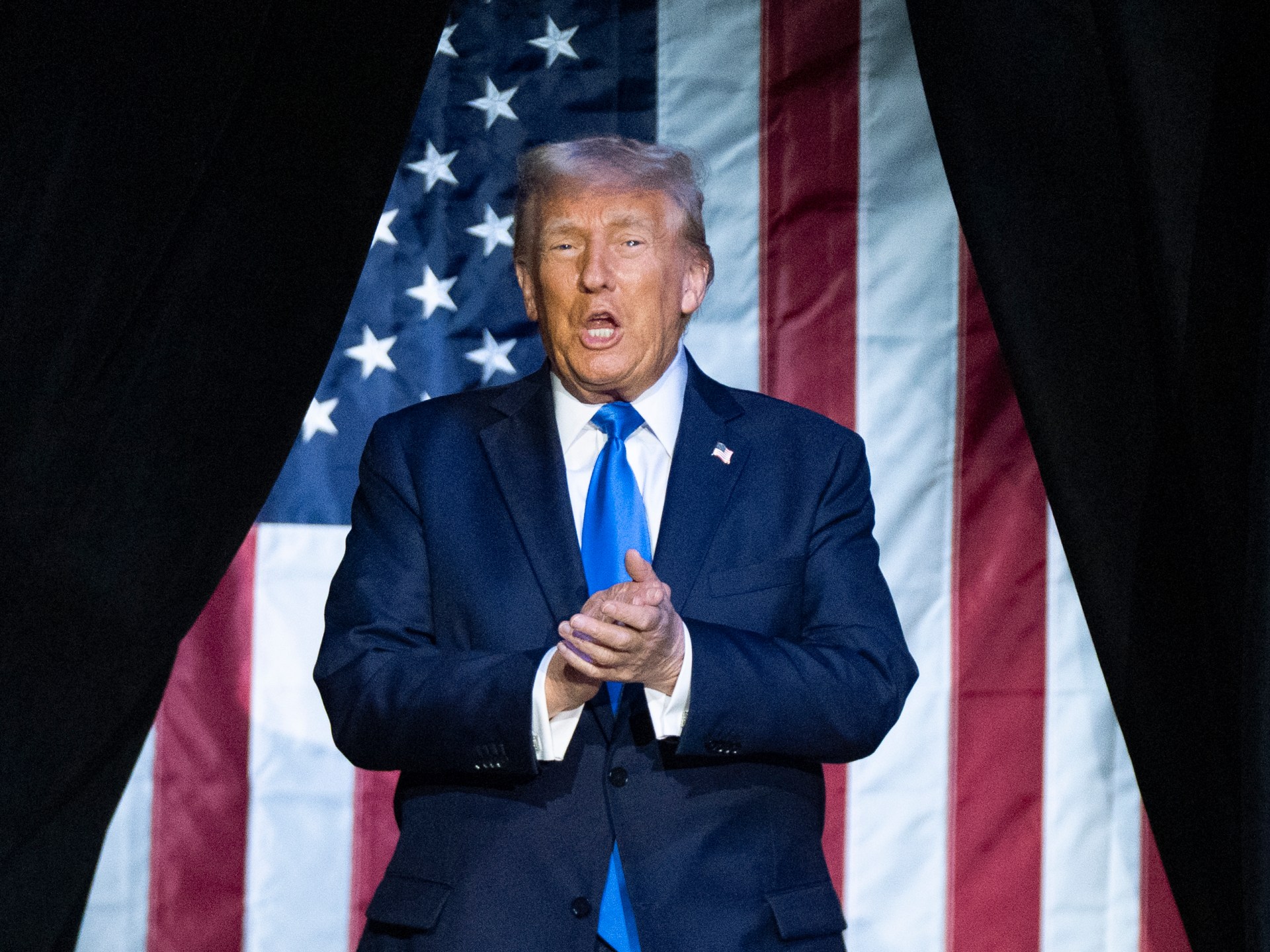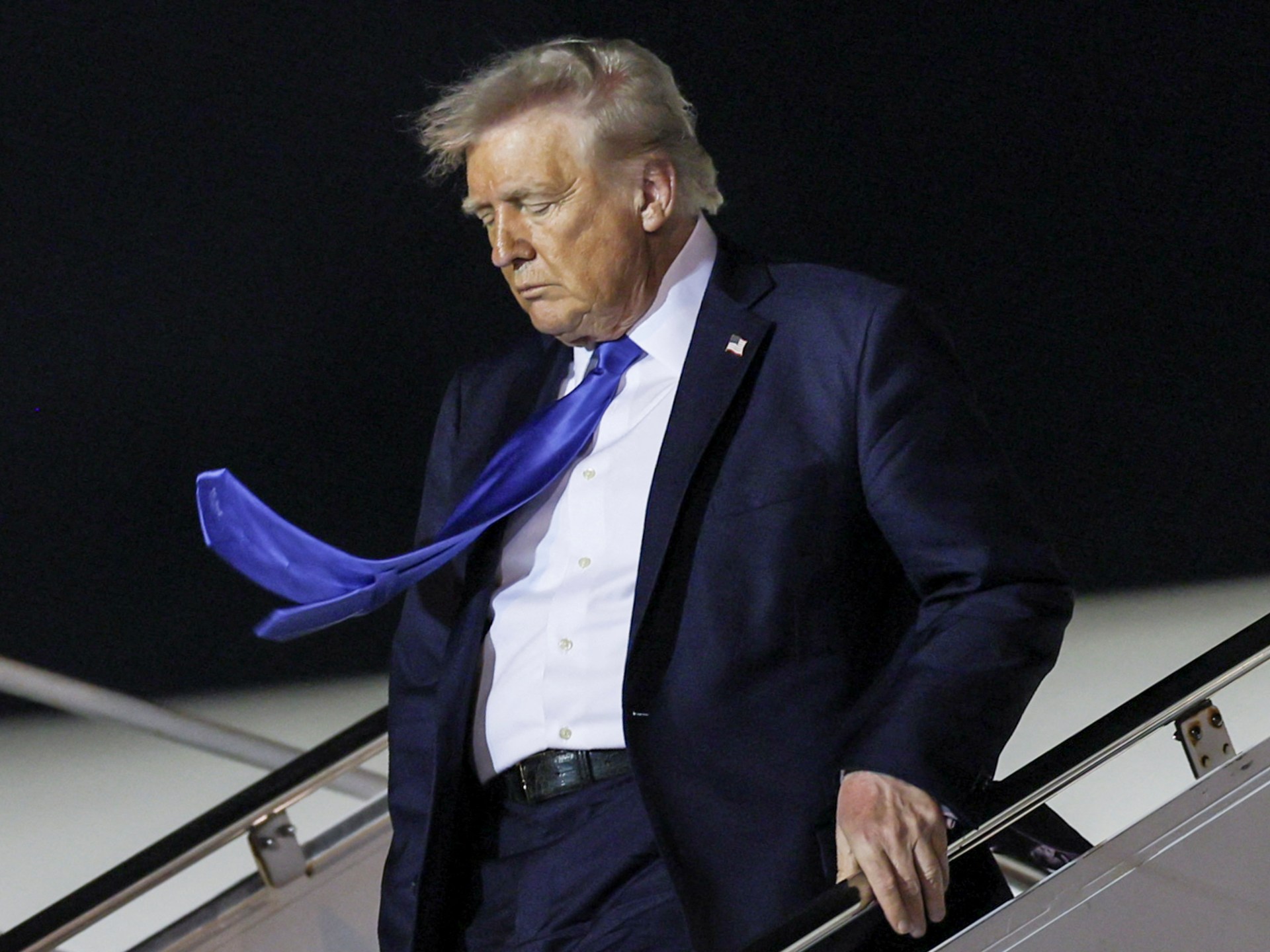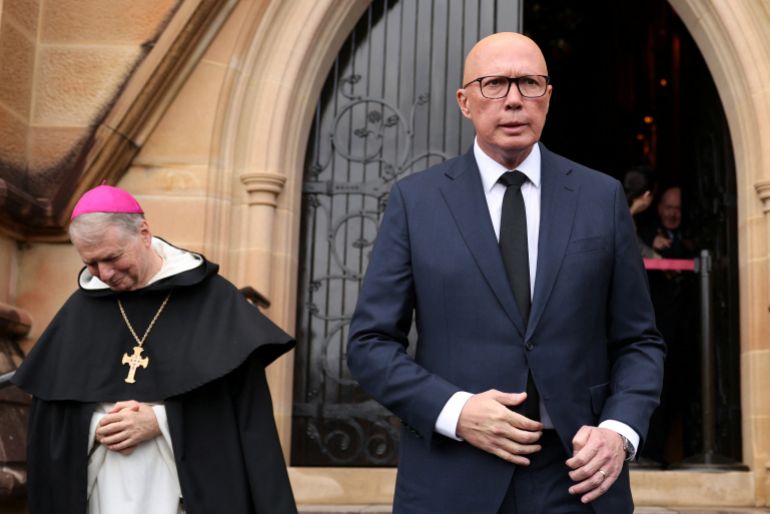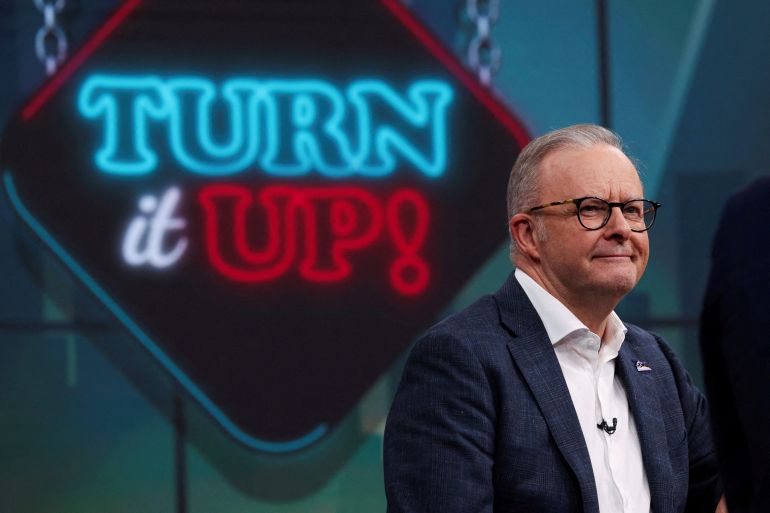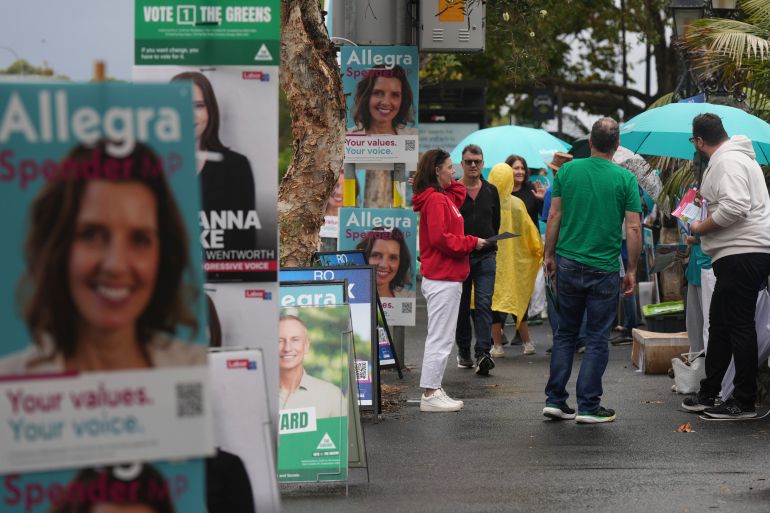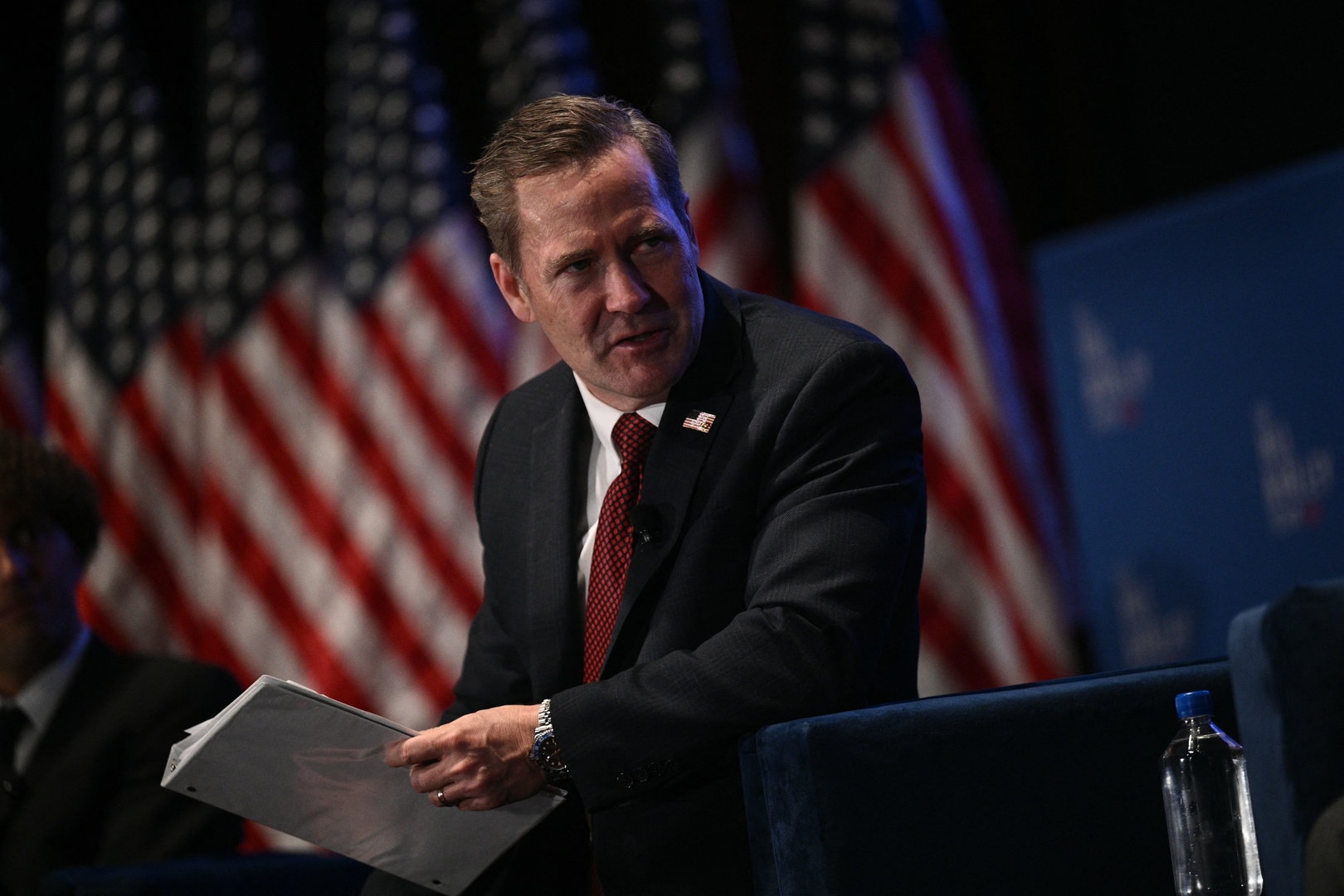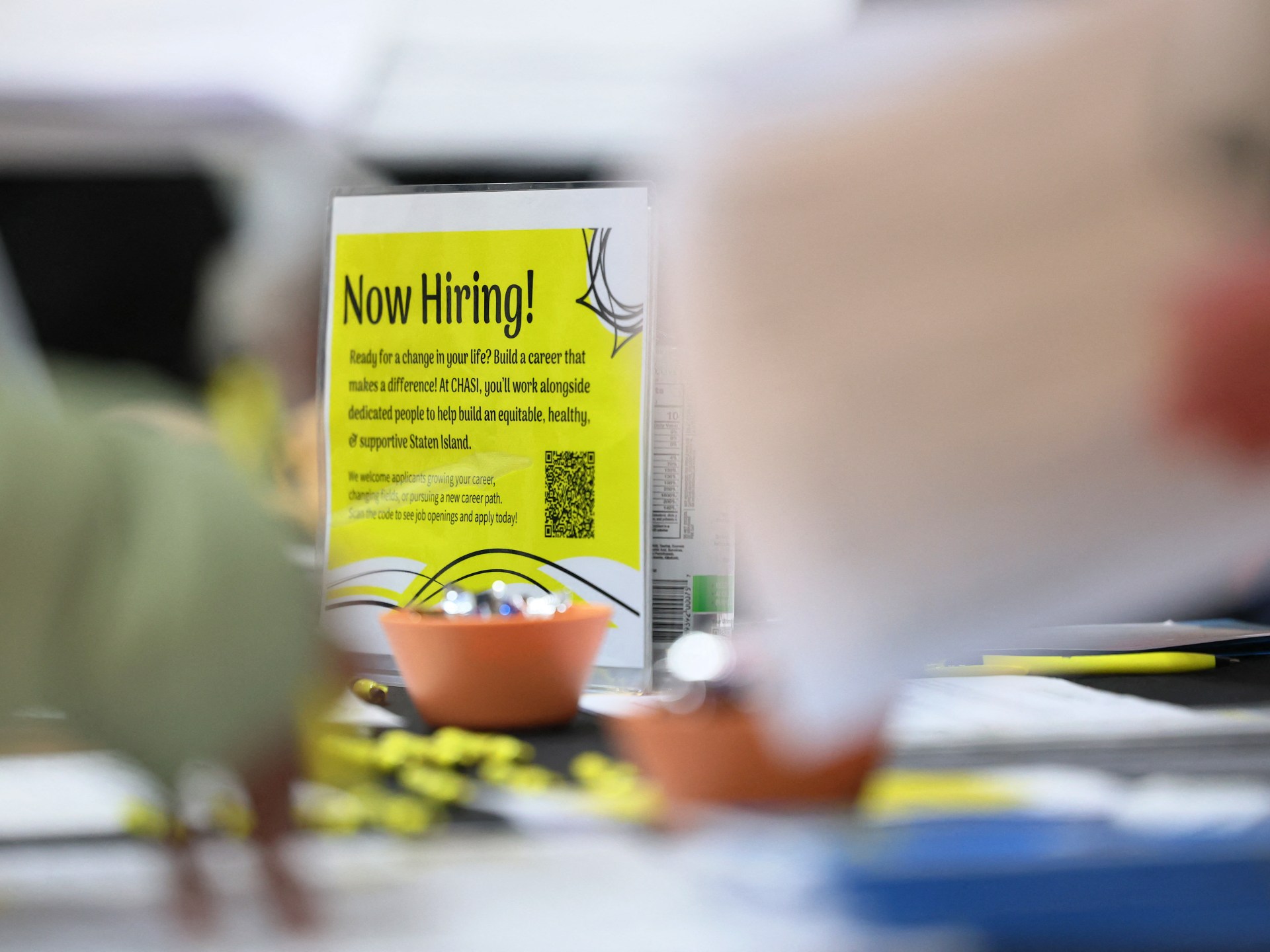The United States economy has added 177,000 jobs in April, topping analysts’ expectations despite economic turmoil in the early months of Donald Trump’s second term as president.
The data, released on Friday by the Labor Department, suggests the job market is holding steady despite uncertainty driven by Trump’s tariff campaign.
The healthcare industry added 51,000 jobs, the highest total gain, but a sum that is consistent with the average monthly growth over the last 12 months. The transportation and warehousing sectors also increased significantly, gaining 29,000 jobs in April.
But experts say that growth in those sectors in particular could be a signal that industries are stockpiling before Trump’s high tariffs kick in, driving up the price of imports.
“People wanted to front-load and bring in more material before the tariff hike,” said Stuart Mackintosh, the executive director of the Group of Thirty, a financial think tank.
While Friday’s labour report contains positive signs, Mackintosh added that other economic indicators signal uncertainty in the market at large, and that could eventually dampen future employment statistics.
“Companies large and small have put warnings on their forward projections of earnings going forward. That’s companies telling us, ‘We don’t know. We are uncertain. And we expect [earnings] are going to fall,’” Mackintosh said.
“I suspect that will soon trickle down to employment.”
Slowing growth
Still, Friday’s labour report showed that employment in the US remains steady despite a suite of changes since Trump took office in January.
Over the last four months, Trump has pursued an aggressive trade policy designed to drive down trade deficits, largely through the threat of tariffs. Currently, the US has a blanket policy of 10-percent tariffs on imports, with the possibility of higher tariffs for individual countries within the next three months.
China, however, currently faces tariffs of 145 percent, due to an ongoing trade war with the US. Canada and Mexico, meanwhile, are shouldering tariffs of 25 percent on all products not covered by a regional free-trade agreement Trump brokered during his first term.
Experts have warned that Trump’s erratic trade policies could have negative knock-on effects over the long term, including slowing economic growth and the possibility of a recession.
But Friday’s report shows that the US labour market has yet to reflect any widespread harms. The unemployment rate held steady in April at 4.2 percent.
The number of underemployed workers who hold part-time jobs for economic reasons also showed little change, holding at 4.7 million people. The labour force participation rate came in at 62.6 percent.
Wages ticked up as well: The average hourly wage rose by six cents to $36.06 since last month. Average hourly earnings have increased by 3.8 percent on an annual basis.
However, the number of Americans who have been unemployed over the long term, classified as 27 weeks or longer, has increased by 179,000 for a total of 1.7 million people.
Other reports, however, do not show the same strong job growth. ADP Research, a company that tracks private sector payrolls, found only 62,000 jobs were added in April, marking the smallest monthly gains since July 2024.
In a news release accompanying the findings, ADP’s chief economist Nela Richardson said “unease” was the prevailing sentiment.
“Employers are trying to reconcile policy and consumer uncertainty with a run of mostly positive economic data,” she explained.
Meanwhile, a separate report from the employment services firm Challenger, Grey & Christmas showed that, while there were hiring gains, the US economy cut more than 105,000 jobs in April.
Government cuts
One area in Friday’s report that did show significant losses was in government employment.
The Labor Department’s report showed a decline of 9,000 jobs in April alone. Overall, since January, it found that 26,000 government workers have lost their jobs.
While the report did not speculate about the reasons for this downward trend, the Trump administration has been vocal in its mission of downsizing the federal government.
As the country’s single largest employer, the federal government boasted upwards of 2,925,000 employees as of 2023. But Trump has pursued a policy of mass layoffs, on the premise that the government is “bloated” with “waste, fraud and abuse”.
The newly established Department of Government Efficiency (DOGE) has been put in charge of streamlining the federal workforce under the leadership of tech billionaire Elon Musk.
Hundreds of thousands of federal workers are expected to be laid off by year’s end, but many DOGE cuts are currently being challenged in federal court, as well as through programmes like the Merit Systems Protection Board, which protects employee rights.
As a result, some employees are on paid leave. Others are currently receiving severance pay. Neither group would be categorised as “unemployed” for the purposes of April’s job report.
In its report, Challenger, Grey & Christmas found that a total of 282,227 federal jobs were slashed so far this year, the majority of which could be attributed to DOGE’s cuts. That marked a 680-percent increase in government sector job cuts from April 2024.
The downsizing has already hit key government functions. Earlier this month, the news agency Reuters reported that the Food and Drug Administration was suspending a quality control programme in its Food Emergency Response Network due to staffing cuts.
A broader economic downturn
But government cuts could have ramifications for the employment market even beyond the federal workforce.
The Trump administration has also sought to roll back government spending, slashing grants, contracts and foreign aid programmes that use US companies as private contractors.
Experts believe this month’s gains in the healthcare sector, for example, could be short-lived amid cuts to government bodies like the Department of Health and Human Services.
Those departments often fund universities and private companies to do research on their behalf.
“The administration has been cutting funding for institutions, like in higher education, in research institutions. They’ve been cutting grants that have gone out for grants for particular communities, for mental health services for children,” said Jessica Fulton, a senior fellow at the Joint Center for Political and Economic Studies, a think tank that focuses on Black communities.
“Those are job-sustaining investments,” Fulton explained. “We will see the impact of those [cuts] in future jobs reports.”
She also pointed to legislation in Congress that could also lead to employment in the healthcare sector shrinking.
Critics argue the current Republican-led budget bill would require cuts to Medicaid — a government insurance programme for low-income individuals — in order to fund tax cuts and other party priorities.
“Any potential cuts to programme like Medicaid could threaten those jobs in the future,” Fulton said. “We are in a wait-and-see posture.”
Other industries are likewise bracing for economic turbulence ahead. This week, several companies, including the social media giant Snap and carmaker Stellantis, suspended future guidance for investors. Stellantis already furloughed 900 workers in early April amid tariff-driven uncertainty.
The Commerce Department released a report that showed the US gross domestic product (GDP) shrank by an annual rate of 0.3 percent during the first quarter of 2025, compared with 2.4 percent growth in the fourth quarter of 2024.
On Tuesday, a separate report released by The Conference Board, an economic nonprofit, showed consumer confidence fell 7.9 points in April.
“Consumer confidence declined for a fifth consecutive month in April, falling to levels not seen since the onset of the COVID pandemic,” Stephanie Guichard, a senior economist at The Conference Board, said in a statement.
The report also noted growing fears about the state of the job market. An estimated 32 percent of Americans expect fewer jobs to be available over the next six months, a rate similar to what the board found in April 2009, at the height of the Great Recession.
